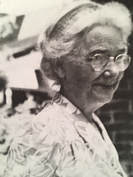 "Uppie" Updegraff (Neptune Historical Museum)
"Uppie" Updegraff (Neptune Historical Museum) I knew Uppie from practically the day I was born and have several pictures from a photoshoot on her lawn when I was 4 1/2 months old - me with my parents, me with Uppie's cat - all with her famous house looming in the background, blurred but visible. I suspect Uppie counted my mom and dad as being among a few hundred of her closest friends. More than once I heard the story of her comment when she first saw me as a baby: “Lots of head above the ears - just like her father.” I don’t give her much credit for phrenology; but for finding a way to admire a baby and flatter the baby's father at the same time, she definitely deserved the Dale Carnegie award for knowing how to win friends and influence new parents.
I remember Uppie as a tiny, wizened old lady though at the time she was probably about the same age as I am now. Living with her in the bungalow were her willowy daughter Virginia - also a real estate agent - and Virginia’s husband, the splendidly mustachioed Alphonse Tonietti.
I always found Alphonse a bit of an enigma, but with the help of my friend Joyce, who has a better memory than I do for these details, and my cousin Alan, who is a better scholar than I am, I've pieced together most of his story. Alphonse was born in 1896 in Basrah (then part of the Ottoman Empire), attended the American College in Beirut, Lebanon, and arrived in the US in 1921, where he graduated from the Columbia University School of Journalism. He went on to have what seems to have been a fairly distinguished career, working as editor of the Literary Digest Magazine and serving on the staffs of the New York World-Telegram and the New York Sun.
Then, in the mid-1930s, Alphonse achieved a measure of possibly unwanted fame when he was fired by the Italian language newspaper Il Progresso, followed by a lawsuit that was widely reported in the Communist and liberal press. Amazingly, he won his case and was reinstated with seven weeks' back pay, the Court finding that he had been discharged not because (as Il Progresso claimed) he didn't write in Italian - that had never been a requirement of his position as editor of the American page - but because of his activities as Chair of Il Progresso's chapter of the New York Newspaper Guild.
By the time I knew him, he had moved on to become the owner and operator of the Holy Land Art Company in New York City, a manufacturer of religious artifacts and fabrics. He died in his office on Murray Street in June of 1958, at the age of 61. Virginia Tonietti lived on for another thirty years; she never remarried.
Two details of more than passing interest are missing here - why Alphonse abandoned his journalism career in favor of selling religious objects; and even more intriguing, how on earth he managed to meet an all-American girl from the tiny hamlet of Shark River Hills, New Jersey and persuade her, in October of 1931, to become his bride.
But wait! Wasn’t Uppie’s house, built in around 1913, supposed to be the oldest house in Shark River Hills? Surely Zillow had gotten the date of the Stodola home wrong.
When I visited Shark River Hills this past August, I had a chance to chat with the current owner of the house, who confirmed that yes, indeed, the house was built in 1908 - that's the date shown on the deed. When I observed that the date seemed too early by several years, he told me that the daughter of the previous owner, the one who had bought the home from my parents, had informed him that the house was originally built not as a residence but as a retreat for Roman Catholic priests, on land purchased by the sister of one of the priests. In fact, he said, the house featured two small prayer rooms, one in the basement, the other a second floor enclosure barely larger than a closet that my father had used as his ham shack!
So far my efforts to track down the previous owner’s daughter or to find any corroboration of the house’s supposed history as a Catholic retreat have failed. If anyone reading this blog can provide me with information about the history of my childhood home I would be very grateful.
As usual, Mary Jane had it just right, even if there’s no precise demographic term for an old-timey summer resort proceeding peaceably along its journey toward year-round development when it suddenly finds itself host to an Army base and under pressure to make itself user-friendly for a large infusion of military and associated civilian personnel. My father was part of that Camp Evans infusion, and so it happened that this oddly unique moment in the history of Shark River Hills formed the backdrop for my childhood.
The “great hurricane of 1944” demolished the old boardwalk, and no one bothered to rebuild it. The era of Shark River Hills as a summer resort had come to an end.
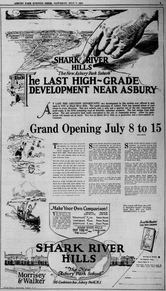
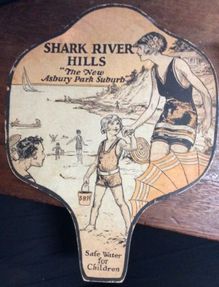
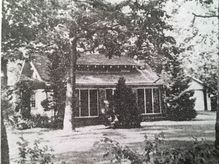
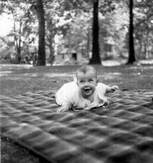
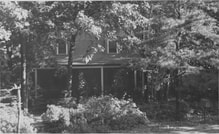
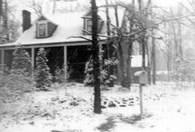
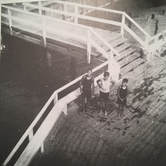
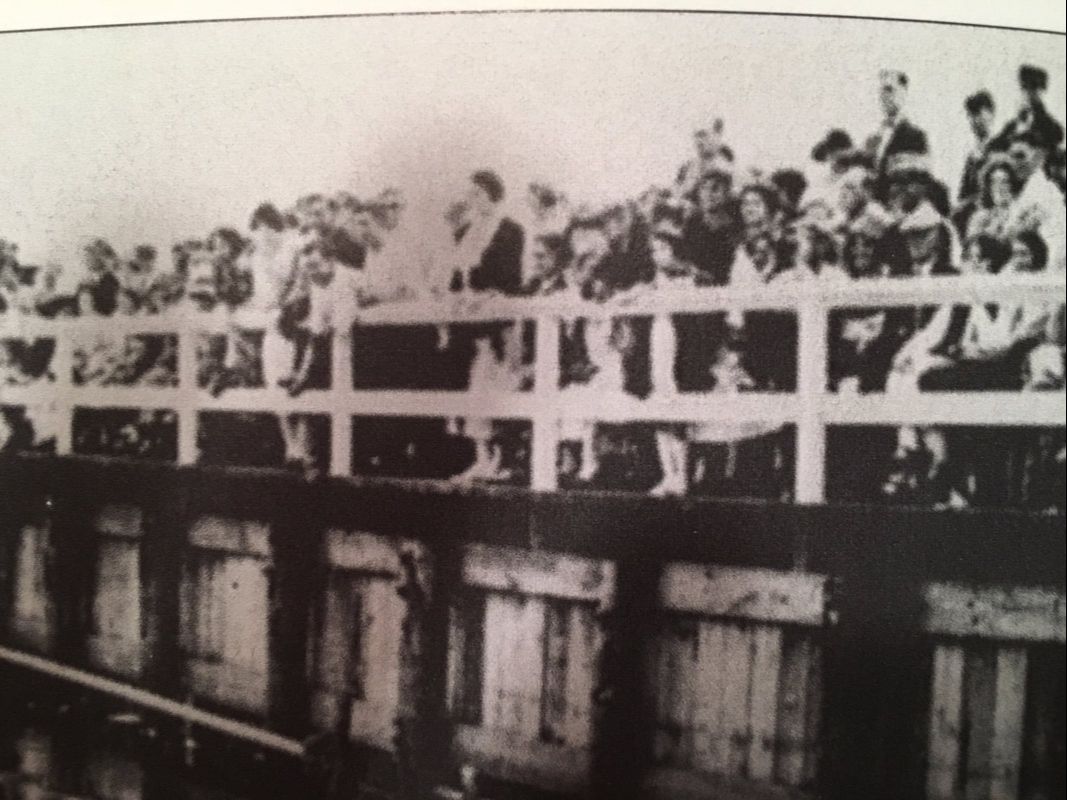
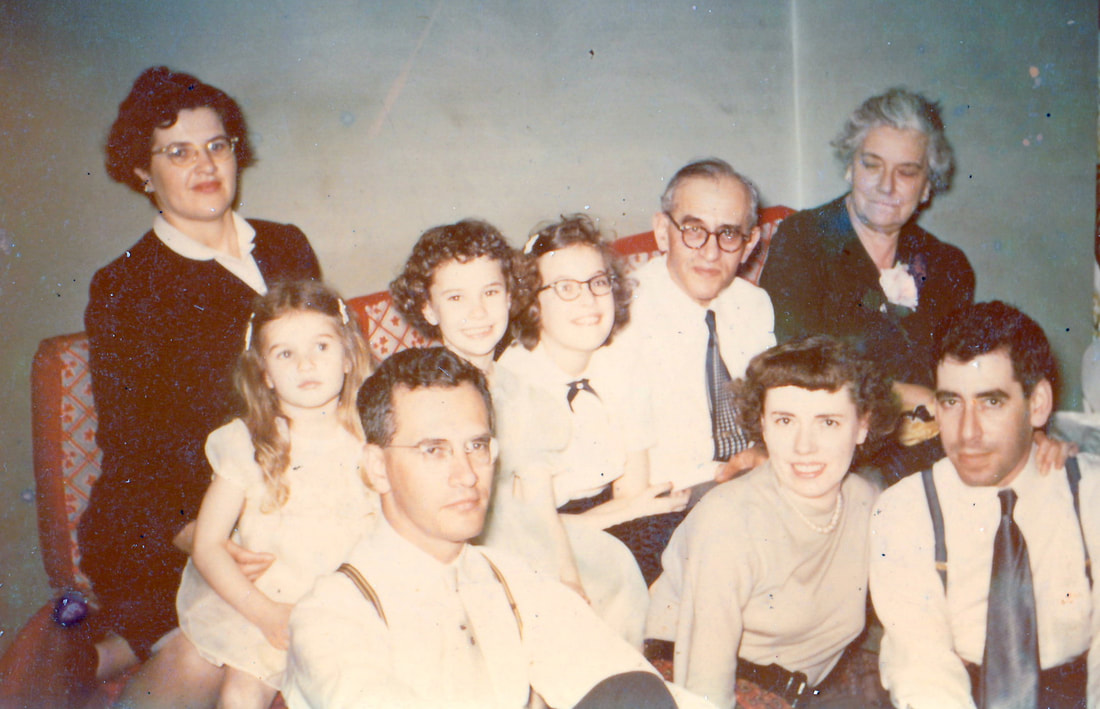

 RSS Feed
RSS Feed